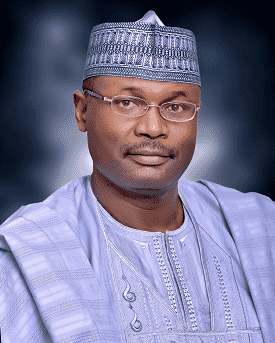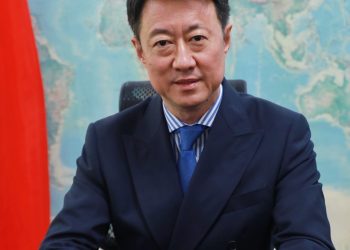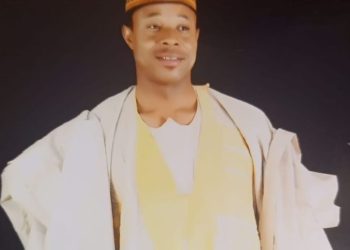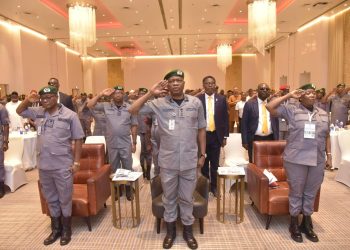By Nkechi Eze
In the complex terrain of Nigerian politics where institutional fragility and democratic uncertainty often collide, Professor Mahmood Yakubu has emerged as one of the most consequential figures in electoral administration. Since assuming office as Chairman of the Independent National Electoral Commission (INEC), his stewardship has spanned one of the most dynamic periods in Nigeria’s democratic history, marked by sweeping reforms, ambitious digitization, large-scale voter mobilization, legislative breakthroughs, and contentious elections.
A former Executive Secretary of the Tertiary Education Trust Fund (TETFund) and a distinguished academic with deep roots in policy scholarship, Yakubu did not walk into INEC unarmed. He arrived with an expansive intellectual arsenal, a technocratic disposition, and an unrelenting appetite for reform. These qualities would come to define his years at the helm of Nigeria’s apex electoral body.
A Technological Gamble and the 2023 Turning Point
Perhaps the most defining feature of Yakubu’s legacy is his dogged push for technological transformation in Nigeria’s electoral system. The introduction of the Bimodal Voter Accreditation System (BVAS) and the INEC Result Viewing Portal (IReV) marked an audacious leap toward electoral transparency. The BVAS, combining fingerprint and facial recognition, was deployed nationwide in the 2023 general elections to curtail identity fraud, multiple voting, and impersonation.
Simultaneously, the IReV portal allowed for the real-time upload of results from polling units, a feature that won applause from observers, both local and international. For the first time in Nigeria’s electoral history, voters could monitor election outcomes from their mobile devices. These reforms created a new architecture of public trust, but they also came under heavy scrutiny when technical hitches hampered the timely transmission of presidential election results. While critics questioned INEC’s operational readiness, Yakubu remained firm that the setbacks were not evidence of sabotage but logistical and technological constraints in a country where even basic infrastructure can be unreliable.
The Law and Its Letters: Electoral Act 2022
Beyond technological reinvention, Yakubu’s boldest legislative triumph came with the passage of the 2022 Electoral Act, an amendment he pursued relentlessly with lawmakers. This legislation codified the use of BVAS and electronic transmission of results, improved the legal framework around party primaries, and established clearer timelines for political party activities. These changes helped reduce the judicial ambiguity that had plagued earlier electoral cycles and gave INEC more teeth to enforce compliance.
INEC, under Yakubu, identified over 140 reform proposals post-election, eight of which required constitutional or statutory amendments. His strategic partnership with the National Assembly and civil society ensured that critical gaps in the electoral framework were addressed. The passage of the Electoral Act 2022 wasn’t just a victory for the Commission, it was a watershed moment for Nigeria’s democratic process.
The Herculean Task of Logistics and Coordination
Elections in Nigeria are a logistical behemoth. With over 93 million registered voters, more than 176,000 polling units, and upwards of 1.4 million ad hoc staff to deploy, the sheer scale of electoral operations under Yakubu’s watch remains staggering. Despite repeated attacks on INEC offices, arson, and disruptions in several regions, Yakubu managed to coordinate national and off-cycle elections with a resolve that many found admirable.
From the rural creeks of Bayelsa to the bustling cities of Lagos and Kano, INEC maintained its commitment to voter access. In volatile states like Imo, Anambra, and Zamfara, Yakubu’s coordination with security agencies via the Inter-Agency Consultative Committee on Election Security (ICCES) helped prevent widespread violence and electoral manipulation, even though isolated incidents persisted.
Voter Inclusion: Expanding the Democratic Space
Under Yakubu’s leadership, INEC launched one of the most expansive voter registration drives in Nigerian history. The Continuous Voter Registration (CVR) campaign before the 2023 general elections added over 12 million new voters to the electoral roll. For the first time, INEC introduced an online pre-registration portal to ease pressure on physical registration centers. The youth demographic accounted for a significant portion of the new registrants, reflecting a growing political consciousness among Nigeria’s younger citizens.
Yakubu also championed electoral inclusion for marginalized groups, including Persons with Disabilities (PWDs). Braille ballot guides, priority voting for the elderly and pregnant women, and sign language interpreters at selected polling units signaled a shift toward a more inclusive democratic culture, even as infrastructure and capacity gaps continued to limit full implementation.
Turbulence from the Courts and Political Class
No tenure at INEC has escaped the court of public opinion or the actual courts. Yakubu’s INEC frequently found itself defending decisions in legal battles that often reversed declared outcomes. In the aftermath of the 2023 elections, the Commission faced a barrage of lawsuits, with allegations ranging from technical failures to deliberate compromise. While some verdicts vindicated the Commission, others deepened public distrust.
Despite this, Yakubu’s posture remained that of institutional independence. He repeatedly reminded Nigerians that INEC was not a political actor but a constitutional body working within defined legal limits. His ability to hold the line amid intense political and media scrutiny was seen by many as a testament to his administrative courage and fidelity to democratic principles.
Partners, Watchdogs, and the Global Eye
Yakubu’s openness to engagement with civil society, development partners, and international observer missions added a layer of accountability and transparency to his stewardship. INEC actively welcomed domestic and foreign observers and responded to their findings with periodic reforms. Under Yakubu, the Commission held extensive pre- and post-election consultations with political parties, security agencies, and media organizations to improve operational efficiency.
There was also support for diaspora voting in principle, although this remained stalled due to constitutional limitations. Nevertheless, the willingness to entertain and promote the conversation was evidence of an administration that was forward-thinking and globally aware.
Security, Arson, and Institutional Grit
Perhaps no other INEC Chairman has faced as many security-related setbacks as Mahmood Yakubu. Offices of the Commission were burned, ballot materials destroyed, and personnel attacked in various parts of the country. The Southeast alone recorded multiple incidents of arson against INEC infrastructure in the buildup to the 2023 elections. In the face of these threats, INEC showed remarkable resilience. Elections went ahead, equipment was replaced, and staff showed uncommon courage, often inspired by Yakubu’s own determination to press on.
Legacy in the Balance
Professor Mahmood Yakubu’s time at INEC has been anything but uneventful. It has been shaped by courage and controversy, by groundbreaking reforms and public skepticism. From legislative victories to digital transformation, from record-breaking voter enrollments to high-stakes litigation, Yakubu’s tenure has reshaped Nigeria’s electoral architecture in bold and sometimes contentious ways.
Yet his legacy remains in the balance, measured not just by the innovations he introduced, but also by how they weathered the pressures of Nigeria’s political culture. Still, there is no doubt that the Mahmood Yakubu era will be remembered as one of the most ambitious attempts to modernize electoral governance in Nigeria.
As the dust settles on the 2023 elections and INEC looks toward future cycles, the institutional blueprint left behind by Professor Yakubu offers both a challenge and a guide: that democracy, no matter how fragile, can be strengthened through vision, tenacity, and a deep respect for the will of the people.
















